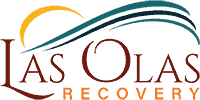
Substance Use Disorder in Nursing
Substance use disorder (SUD) among nursing professionals is a serious issue with significant ramifications for patient safety, healthcare outcomes, and the well-being of the nurses themselves.
Why Do Nurses Misuse Substances?
Nurses, like any other population, can be susceptible to substance use due to various factors such as stress, easy access to medications, and the demanding nature of their profession. However, the consequences of SUD in nursing can be particularly severe, given the critical role nurses play in patient care.
The prevalence of substance use disorder among nurses is a concern in healthcare settings worldwide. According to a study published by Tennessee Research and Creative Exchange (TRACE) in 2022, approximately 10-15% of nurses in the United States may be struggling with SUD, with rates potentially higher in certain specialties or practice settings. Substance use is believed to have increased during the pandemic.
It is imperative to address SUD within the nursing profession to safeguard patient safety and reduce harm among members of the nursing profession.
Substance Use Among the Nursing Profession
The ramifications of substance use disorder in nursing can be far-reaching and profound. Impaired judgment, decreased cognitive function, and impaired motor skills resulting from substance misuse can compromise a nurse's ability to provide safe and effective patient care.
Medication errors, patient neglect, and even serious incidents such as patient harm or fatalities can occur when nurses are under the influence of drugs or alcohol. SUD can have detrimental effects on the physical and mental health of the nurses themselves, leading to burnout, emotional distress, and professional misconduct.
There is a need for destigmatizing SUD within the nursing profession to encourage nurses to seek help without fear of judgment or reprisal. Creating a culture of support, empathy, and accountability can empower nurses to get help when they realize they have a problem.
Traveling Nurses and Substance Use Disorder
The susceptibility of traveling nurses to substance use disorder (SUD) is a complex issue. Traveling nurses may face specific challenges that could potentially increase their risk of SUD, such as frequent relocations, long work hours, and the demands of adjusting to new environments. However, there is no evidence that they are inherently more prone to SUD compared to nurses in other practice settings.
Traveling nurses may face increased stress and isolation due to the transient nature of their employment. Frequent moves and temporary assignments can disrupt social support networks, increase feelings of loneliness, and exacerbate existing stressors, potentially contributing to the development of SUD as a coping mechanism.
The lack of familiarity with local resources and support systems in new locations may make it more challenging for traveling nurses to access timely help for substance use.
However, traveling nurses may also possess certain factors that could mitigate their risk of SUD or enable them to hide it more effectively if present. The rigorous screening and credentialing process required for travel nursing positions may result in a selection bias. People hired into the profession have strong coping skills, resilience, and professional integrity.
Traveling nurses often undergo thorough background checks, licensure verification, and competency assessments, which may serve as deterrents to individuals with a history of substance abuse or dependency.
Substance use disorder does not discriminate. It can affect individuals from any walk of life, and there is no inherent correlation between travel nursing and SUD.
Nurses Are Facing Unprecedented Stress
The COVID-19 pandemic posed unprecedented challenges for nurses. Nurses have faced challenges such as illness, staffing issues, and uncertainty. While it's challenging to make sweeping generalizations about the impact of COVID-19 on addiction in nursing, several factors may have contributed to exacerbating existing challenges or creating new ones:
- Increased Stress and Burnout: The pandemic placed immense pressure on healthcare workers, including nurses, who were on the front lines of the response effort. Long hours, increased patient loads, fear of infection, and witnessing significant suffering all contributed to heightened stress and burnout among nurses. Substance use can sometimes be a coping mechanism for managing stress and emotional distress, including with mental health disorders like PTSD.
- Access to Treatment and Support Services: The pandemic has strained healthcare systems worldwide, leading to disruptions in access to healthcare services, including addiction treatment and support services. According to The American Association of Colleges of Learning, there is still a nursing shortage.
- Changes in Work Environment: The pandemic has necessitated rapid changes in healthcare delivery, many of which may have increased job-related stress and uncertainty. There’s no doubt that the pandemic potentially impacted nurses' mental health and increased their vulnerability to substance use disorder.
- Financial Strain: Inflation and the economic impact of the pandemic, including job losses and financial insecurity, added a lot of stress for families. Financial strain is often a contributing factor to drinking or using drugs.
Addiction can happen to anyone. While nursing is a giving profession, sacrificing your health and happiness while your addiction spirals is dangerous to yourself and the very people you help. The medical profession is a high-paced, high-stress environment where a person can struggle to get their bearings.
Many people in recovery from addiction are also in professions that require them to give a lot of their time and emotions to do their jobs. Sometimes, it takes a wake-up call about their substance use to help them realize they have to put themselves first. For others, they may want to get sober when they know they don’t want a wake-up call; they want a fulfilling, good life.
Getting Help for Substance Use Disorder
Are you or a loved one struggling with addiction? It’s time to take care of yourself and start healing. We’re a safe place and inspiring place to start your journey. Nestled in the serene landscapes of Baja California Sur, Las Olas offers tranquility and comfort for those seeking freedom from addiction.
We can help you detox and begin the process of rebuilding your life. Get in touch to learn more about our services. Contact us at (949) 279-1376 or Mexico (612) 153-5726 to learn more about our programs and amenities.
